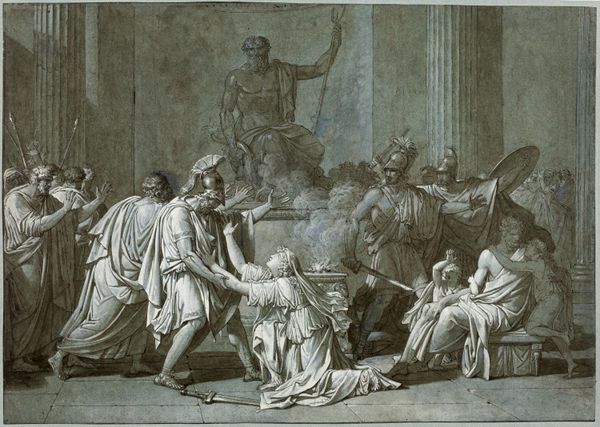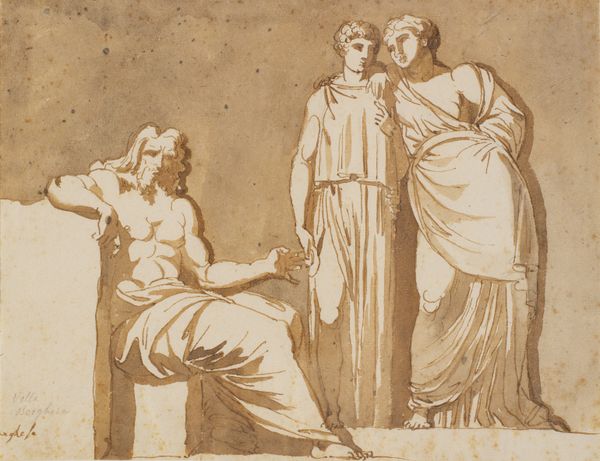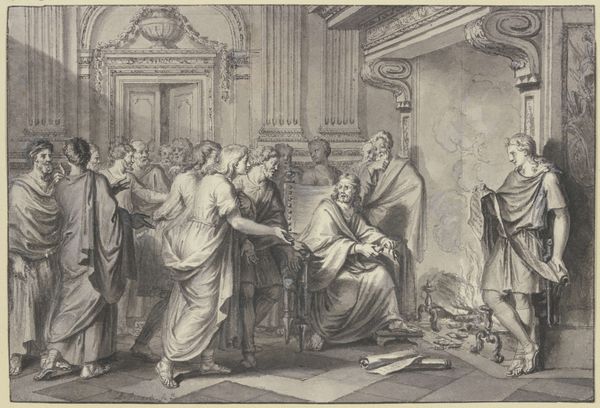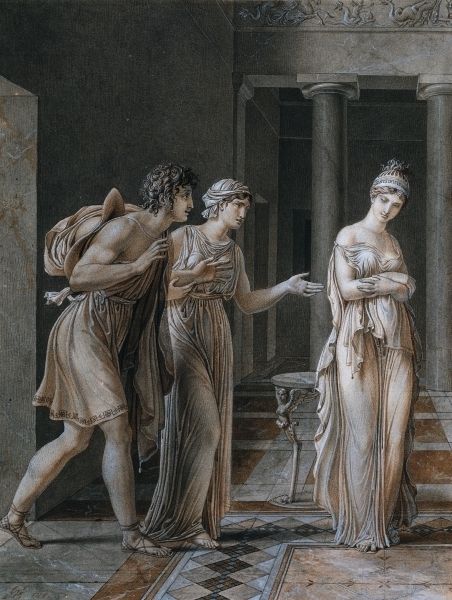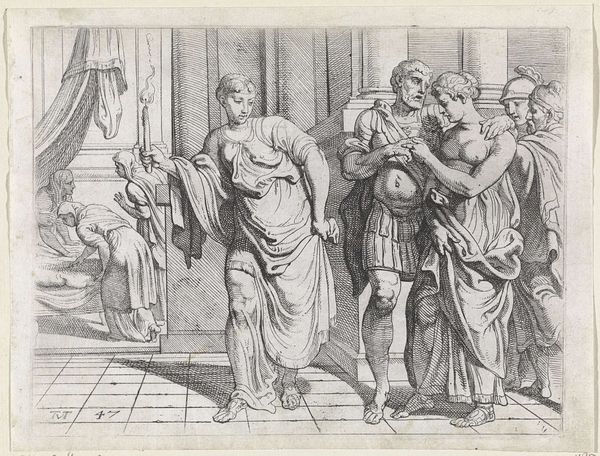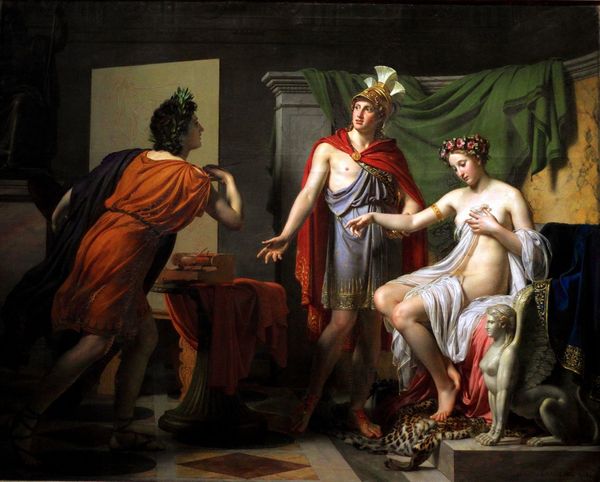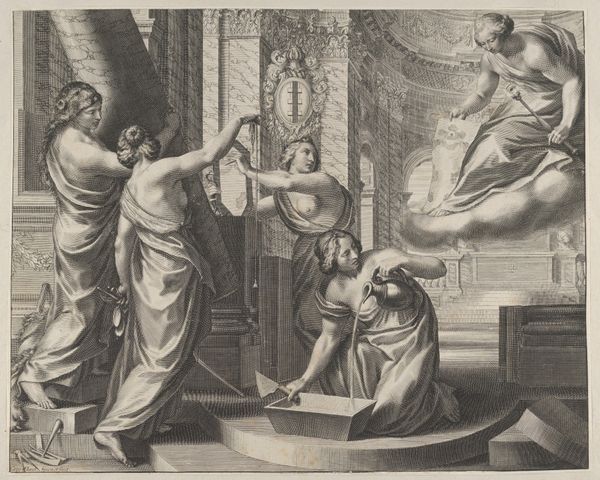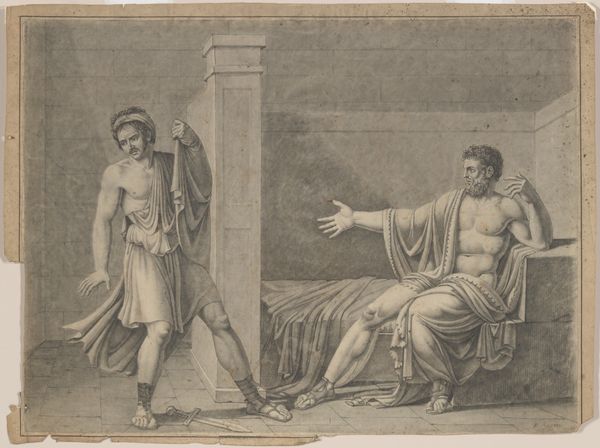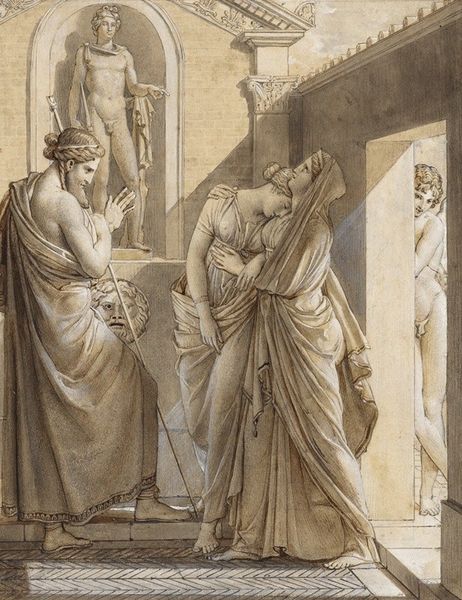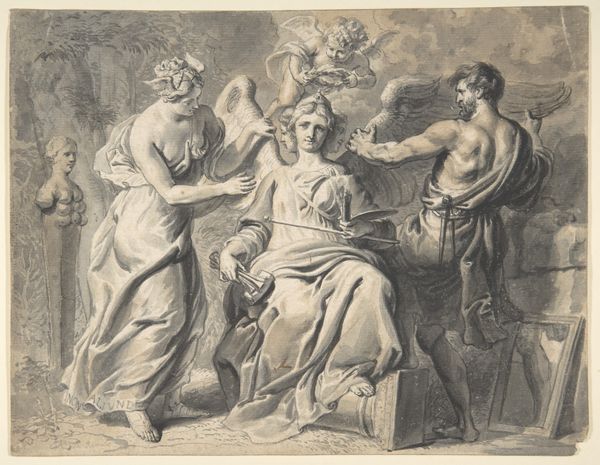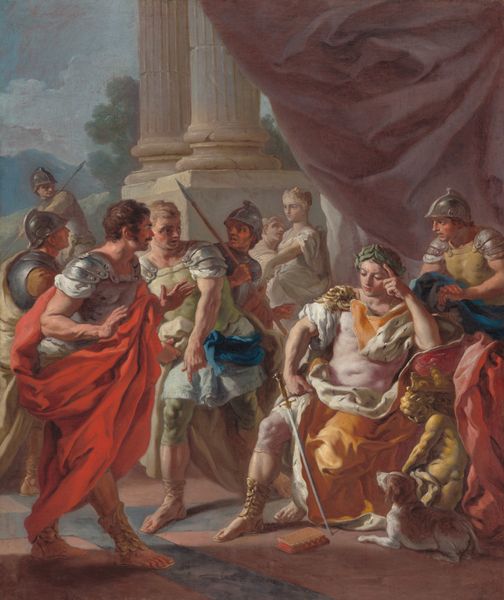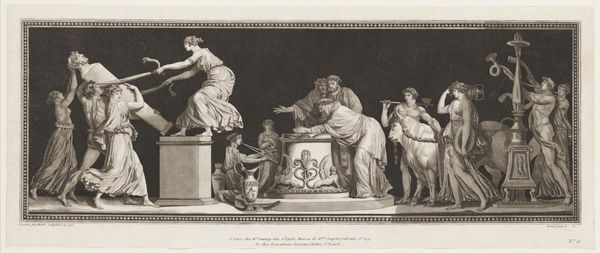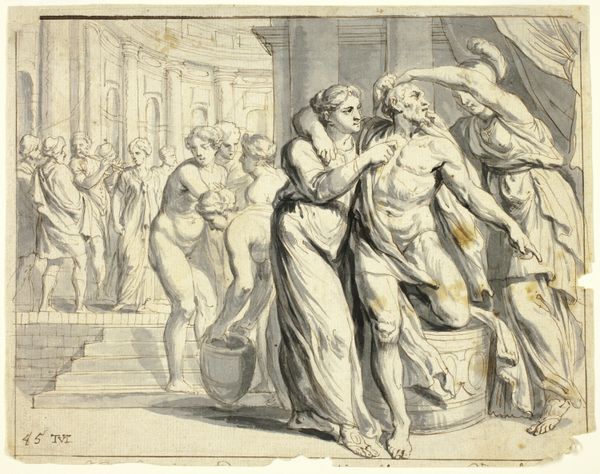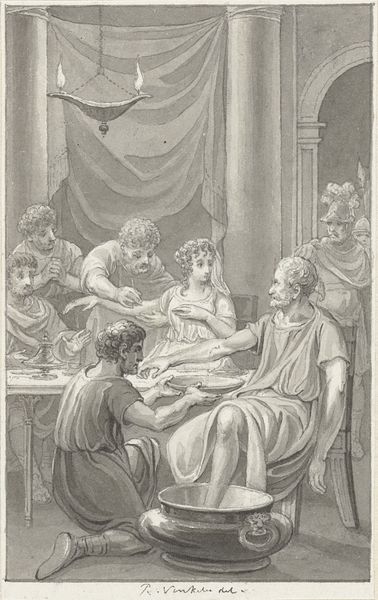
drawing, sculpture, engraving
#
portrait
#
drawing
#
neoclacissism
#
allegory
#
classical-realism
#
charcoal drawing
#
figuration
#
sculpture
#
mythology
#
portrait drawing
#
history-painting
#
academic-art
#
nude
#
engraving
Copyright: Public domain
Jérôme-Martin Langlois made this print, Alexander Ceding Campaspe to Apelles, sometime in the late 18th or early 19th century. Its subject is the classical story of Alexander the Great gifting his favorite concubine, Campaspe, to the painter Apelles. This was a popular subject in France at the time, where the Academy promoted the idea of “grand history painting.” The image creates meaning through visual codes of virtue and patronage. In it, we see the artist, Apelles, as a figure of genius, dedicated to his art, with Alexander acting as the benevolent protector of the arts, able to rise above his passions. But the image can also be seen as a comment on the social structures of its time, one in which art was made to serve the interests of the rich and powerful. In this context, research into the lives of artists and patrons in the 18th and 19th centuries can help us better understand the complex social dynamics that shaped the production and reception of art.
Comments
No comments
Be the first to comment and join the conversation on the ultimate creative platform.
